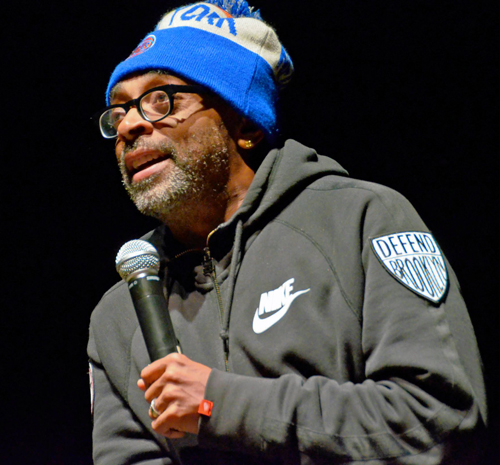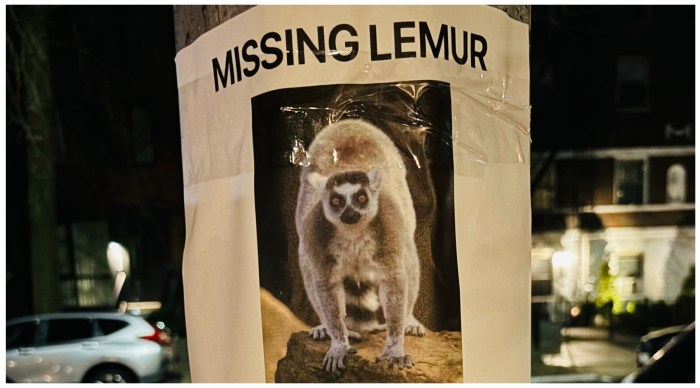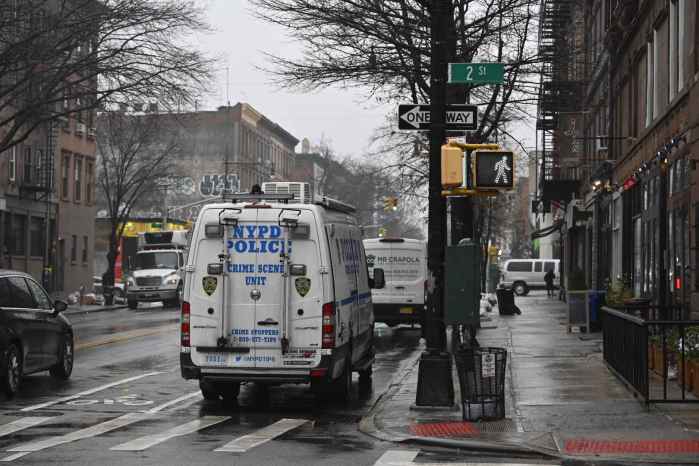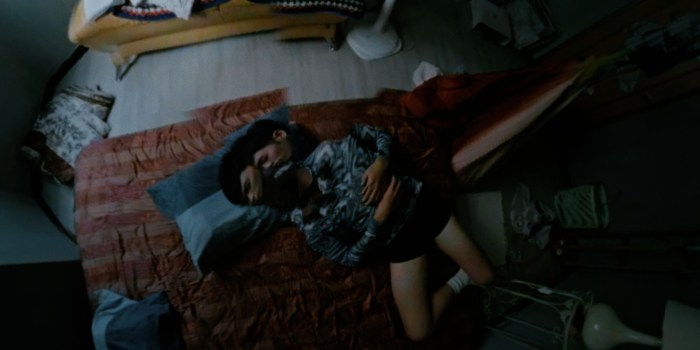White newcomers to Brooklyn are doing the wrong things, according to the borough’s filmmaker laureate and prodigal son.
Spike Lee dropped by Pratt Institute for a Black History Month lecture on Feb. 25 and his talk extensively mined the hot-button issue gripping his beloved former neighborhood and borough — gentrification.
“There was some b——- article in the New York Times saying ‘the good of gentrification,’ ” he said, perhaps referring the Feb. 21 “Argument over a brownstone neighborhood” about the debate over creating a Bedford-Stuyvesant Historic District. “I don’t believe that.”
With gentrification comes unfair disruption, he said. For instance, the iconic black cineaste explained, it was pale-complexioned transplants who rang the alarm about his planned 2009 Michael Jackson tribute party in Fort Greene Park.
“All of a sudden the white people in Fort Greene said, ‘Wait a minute, we can’t have black people having a party for Michael Jackson to celebrate his life — who’s coming to the neighborhood?’ ” Lee said, claiming that the Hadley-come-latelies maintain a double standard when it comes to sniffing at litter. “They didn’t want the garbage. The garbage. Have you seen Fort Greene Park in the morning? It looks like a m———— Westminster Dog Show. There’s 3,000 dogs running around.”
The talk was personal and passionate, with Lee dressed in a trademark Knicks hat — despite the ascendancy of the Nets in his old stomping grounds, Lee has vowed to be buried in orange and blue — matching blue Nike sneakers, and a hooded sweatshirt with a “Defend Brooklyn” patch. He tried to stick to topics linked to his filmmaking and to issues of black culture at large. But as questions from the audience flew, the points hit closer to home.
“I’m all for democracy and letting everybody live, but you’ve got to have some respect,” said Lee in regards to the Jackson party incident. “You can’t just come in here, where people have a culture that has been laid down for generations, and you come and now s—- gotta change because you’re here? Get the f— out of here. You can’t do that.”
He talked about the neighbors who moved in next door to his parents’ Washington Park home of 40 years in 2010 and now call the cops on his dad for allegedly playing jazz music too loudly.
“He doesn’t even play electric bass,” Lee said. “It’s acoustic.”
Nor was the discussion limited to Fort Greene.
“The people that used to live on the Lower East Side, they moved to Williamsburg,” he said, explaining the tidal wave of gentrification that has swept the borough since he was a young lad growing up in Cobble Hill and Fort Greene. “And now they can’t afford m———– Williamsburg because of the m———– hipsters. And what are they calling Bushwick now?”
The luminary behind such Brooklyn classics as “Do the Right Thing” and “She’s Gotta Have It” said it took the arrival of white people in those and other poor Brooklyn neighborhoods for the city to improve services, and that is wrong.
“The garbage wasn’t picked up every m————- day when I lived at 165 Washington Park,” he said. “PS 20 wasn’t good.”
Lee also talked about how he took up filmmaking after his friend, who lived in University Towers on Willoughby Street, gave him an old Super-8 camera she no longer wanted. He gave advice to aspiring movie directors, discussed the changing film industry, and emphasized his devotion to all forms of education.
But he inevitably came back to bemoaning the state of racial and economic affairs in his home borough. At one point, he likened gentrification to a form of imperialism, calling it “Christopher Columbus Syndrome.”
“You can’t discover this, We’ve been here,” he said. “There’s a culture. There’s a people. You can’t just move in stuff.”
When Lee left the stage, reviews from Pratt students were mixed.
“He’s an outspoken dude,” said Kamau Agyeman, who lives on the Clinton Hill campus. “Whether you agree with him or not, he’s always honest.”
A film major was also ambivalent.
“Some of what he had to say was a little much,” said Patrick DeVitta-Dillon. “But sometimes the truth is hard to hear.”




















